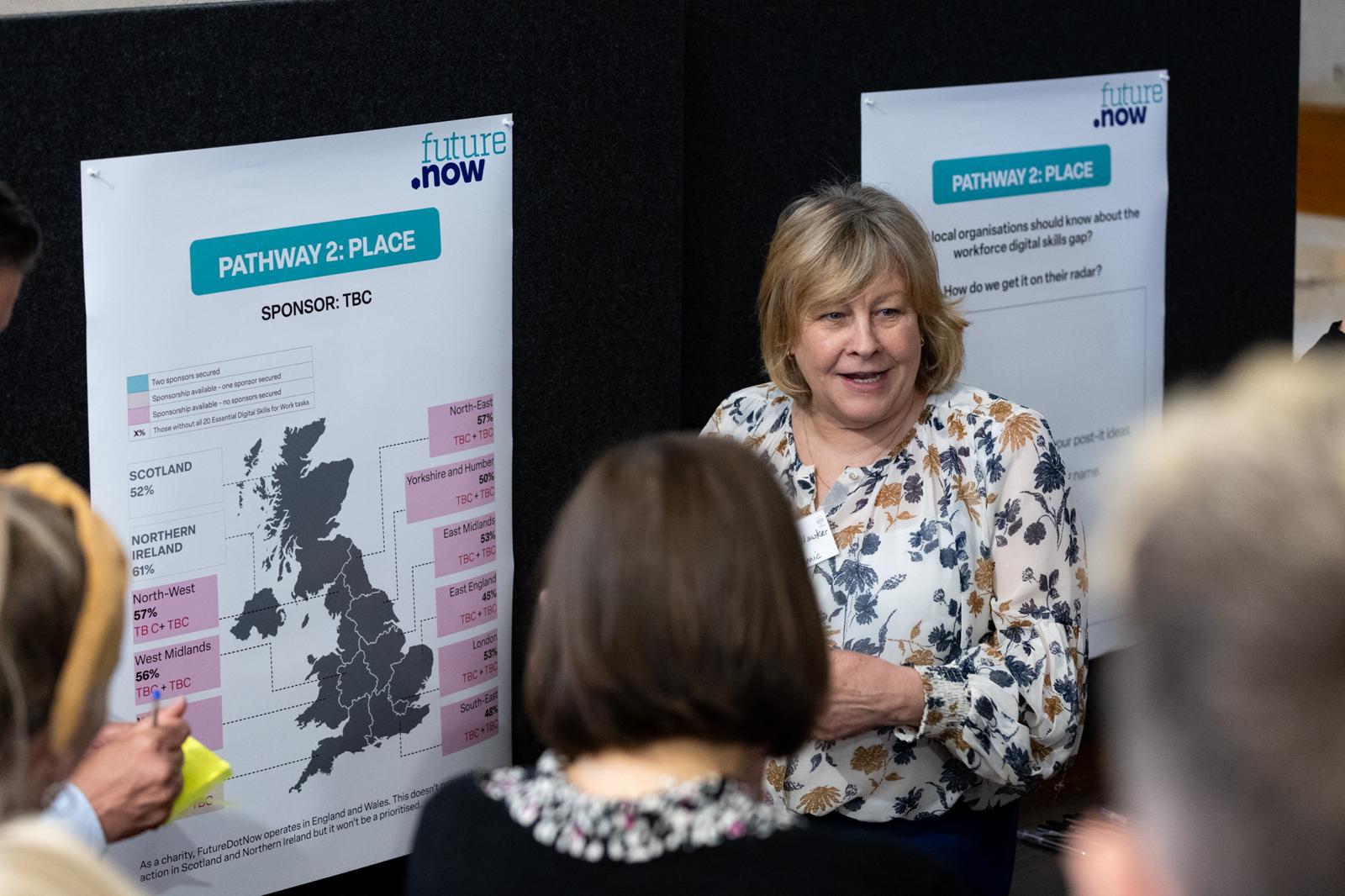Last week, Emma and Julie attended the Workforce Digital Skills Summit run by FutureDotNow at the fabulous Guildhall in the City of London. The event was attended by over 200 people from across businesses, government, education and charities. It was a brilliant opportunity to share progress being made in the ambition to build a future-fit workforce and to share the successes achieved by Cosmic in the SW region.
Cosmic’s work in the SW was profiled in an afternoon session encouraging others to reflect on the actions which could be taken for their regions, and who the key players in making progress might be. This stimulated a great debate on the importance of engaging with local authorities, business networks, colleges and universities as well as sector leaders and influencers in the regions. Julie explained to the audience that Cosmic has been able to develop an excellent range of relationships and points of influence in both public sector and business circles to raise awareness of Essential Digital Skills and how they can be embedded into plans for the future to ensure the routes to closing the digital skills gap (currently standing at over 20 million people) can be successful.
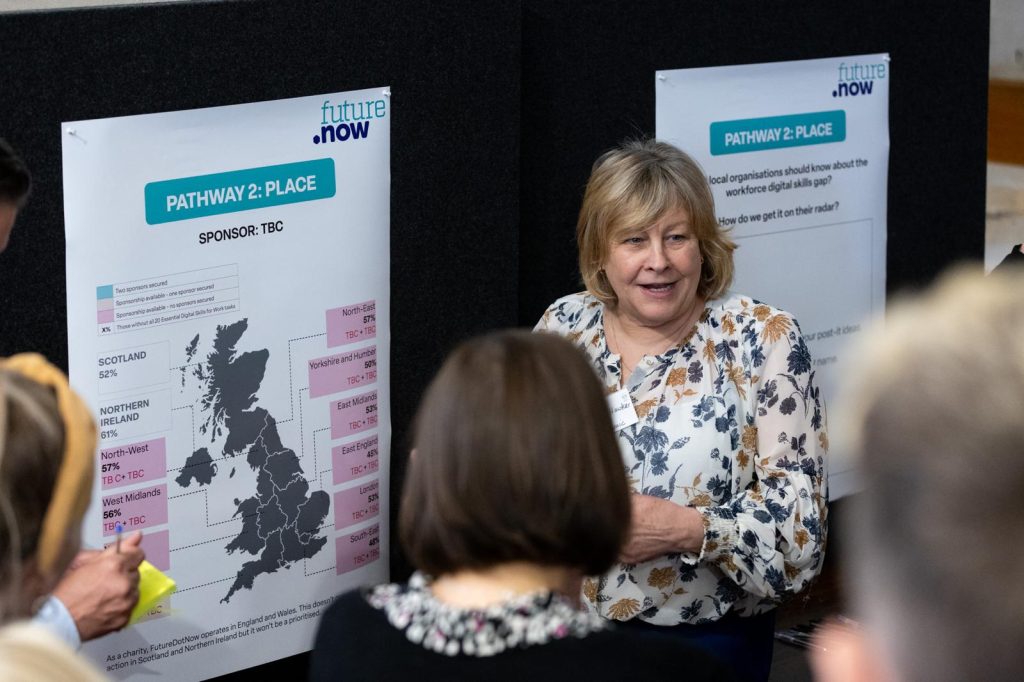
Following the welcoming presentations from Sir Peter Estlin Chair and Liz Williams CEO of FutureDotNow, the Minister for Future Digital Economy and Online Safety, Baroness Jones, provided the audience with the updates from across Government in establishing firm commitments and investment in digital skills in order to elevate achievements in the coming years. The publication of the Digital Inclusion Action Plan was referenced as an important element of setting our objectives and early steps towards the improvements being sought.
A variety of speakers then followed providing a wide-ranging set of perspectives on the economic and social value of digital skills, and on how to build a workforce ready to adapt and prosper. This included Phil Smith CBE recently appointed as Chair of Skills England and a long-standing champion for investing in digital skills and their essential nature both in the workforce and in society.
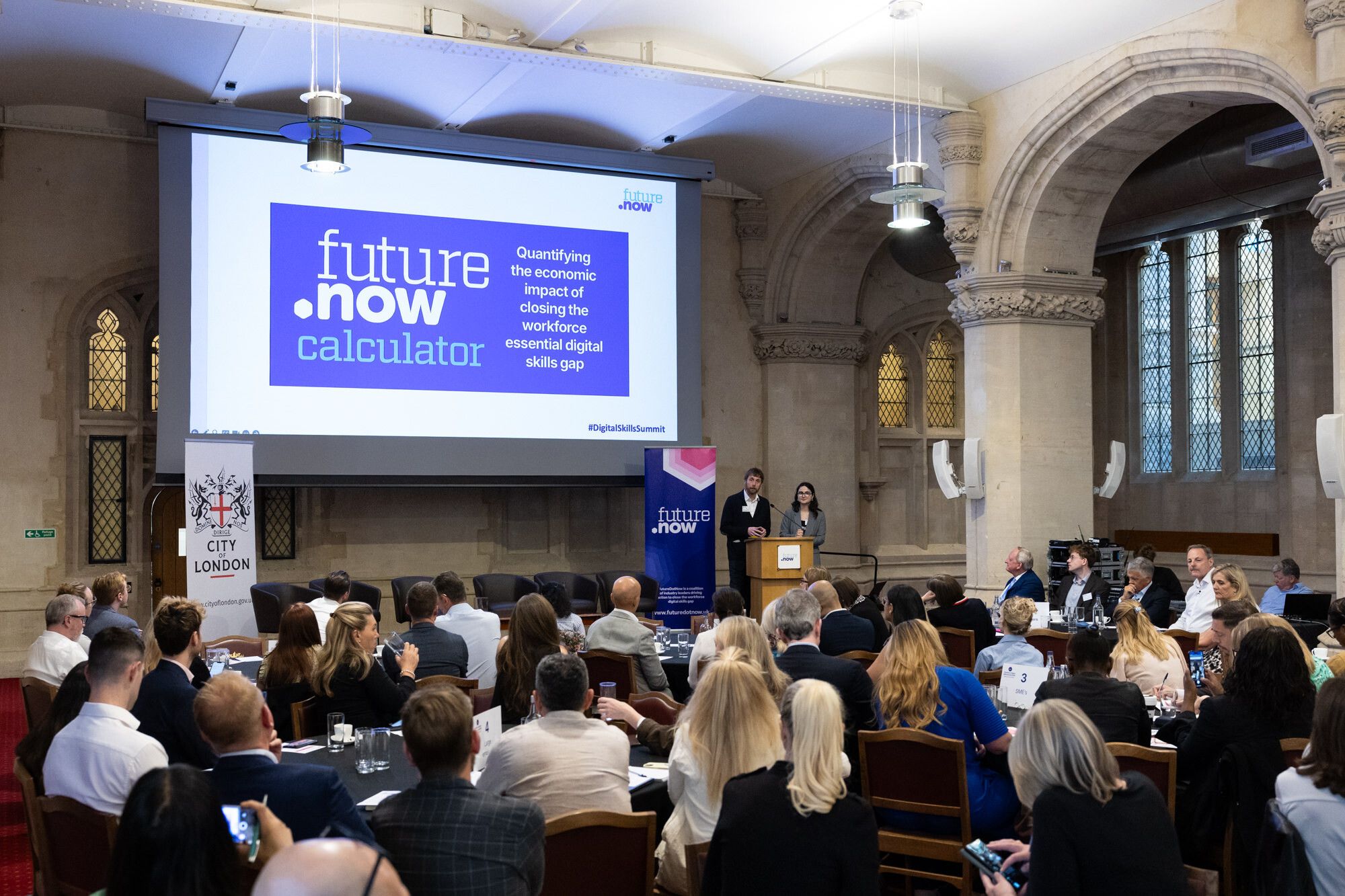
A fascinating set of updates was provided by Dr Matthew Forshaw from the Alan Turing Institute exploring the links between essential digital skills for work and the rapidly evolving AI landscape. According to recent research 3 million jobs will be lost to AI (Tony Blair Institute), but he put it to the audience that people should not necessarily be worried about losing their job to AI, but more so concerned about losing their job to someone who knows how to work with AI. Another fascinating insight and a very welcome focus on the environmental impact of AI, which far-too-many people ignore was that in generating just 25 seconds of video footage and uploading this for use in an AI-simulation, would involve generating the same power as it would take to boil a kettle over 100 times! And also that the AI skills gap in the UK is a geographic issue, with London being much further ahead than any other region at this time. In face, of the AI start-ups in Europe right now, 1 in 4 of these is based in London.
Another excellent set of perspectives was provided by Tammy Fevrier from Department for Work and Pensions, and she reminded the audience that for a lot of people the notion of “skills” and “learning” (let alone “digital skills”) was a real turn-off. Many learners and particularly those seeking employment are not concerned and do not value qualifications-based learning, but need the skills to obtain a job and progress well. Modular, bite-size learning is essential in this respect and contextualised to work-place settings too.
Peter Cheese who is CEO at the Chartered Institute for Personnel Development (CIPD) emphasised the importance of HR leaders in the development of effective programmes of digital skills, and to ensure that human skills are valued as much as technical ones. His stand-out remark was that “AI has created the best mirror we’ve ever had to understand human bias” and encouraged us all to seek clarity on issues of bias, both human and machine-driven.
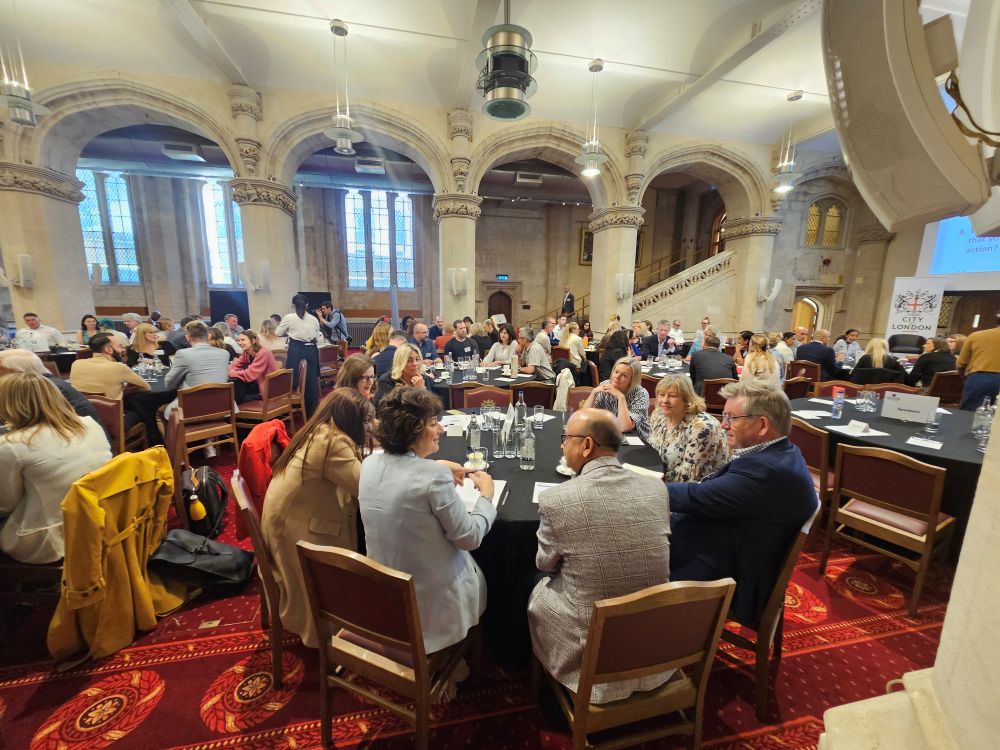
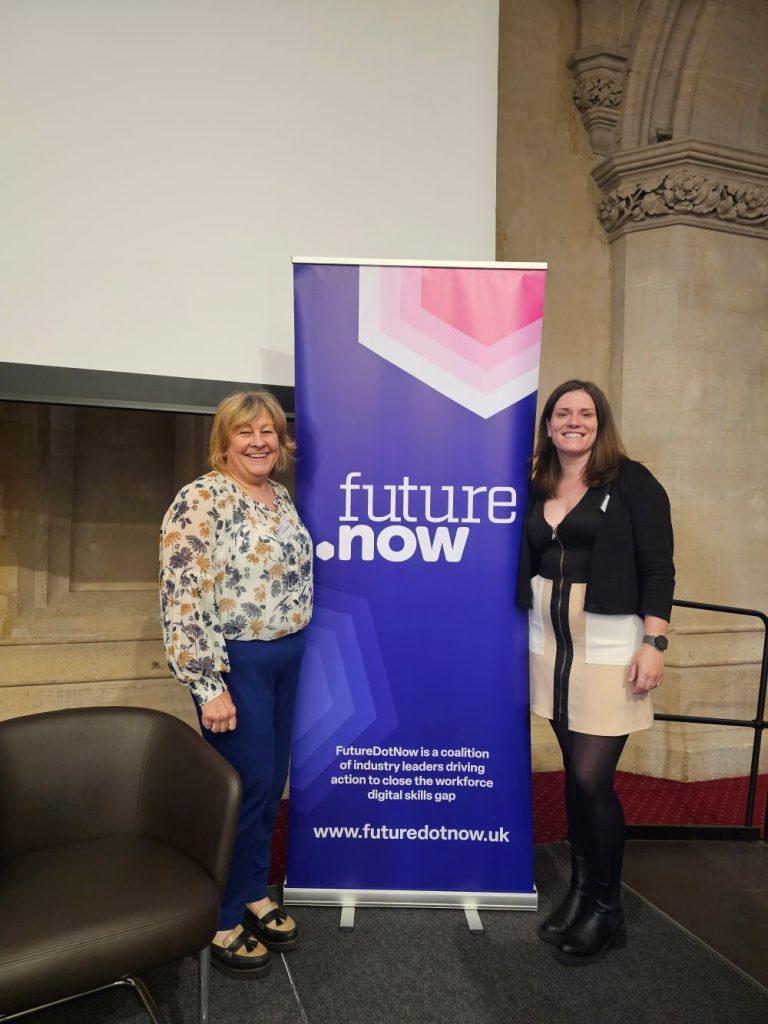
What happens next?
The message from the Workforce Digital Skills Summit was loud and clear: closing the essential digital skills gap is no longer a nice-to-have — it’s a national economic priority, and action is needed at every level.
At Cosmic, we are proud to be part of this mission. Through our work across the South West, and in partnership with local authorities, employers, and educators, we are already helping organisations turn ambition into action. But there is much more to do.
If you are thinking about how to embed essential digital skills into your organisation, your workforce, or your region, we would love to talk.
Whether it’s about developing your local partnerships, supporting your teams with tailored workplace training, or making sense of the national agenda — Cosmic is here to help.

